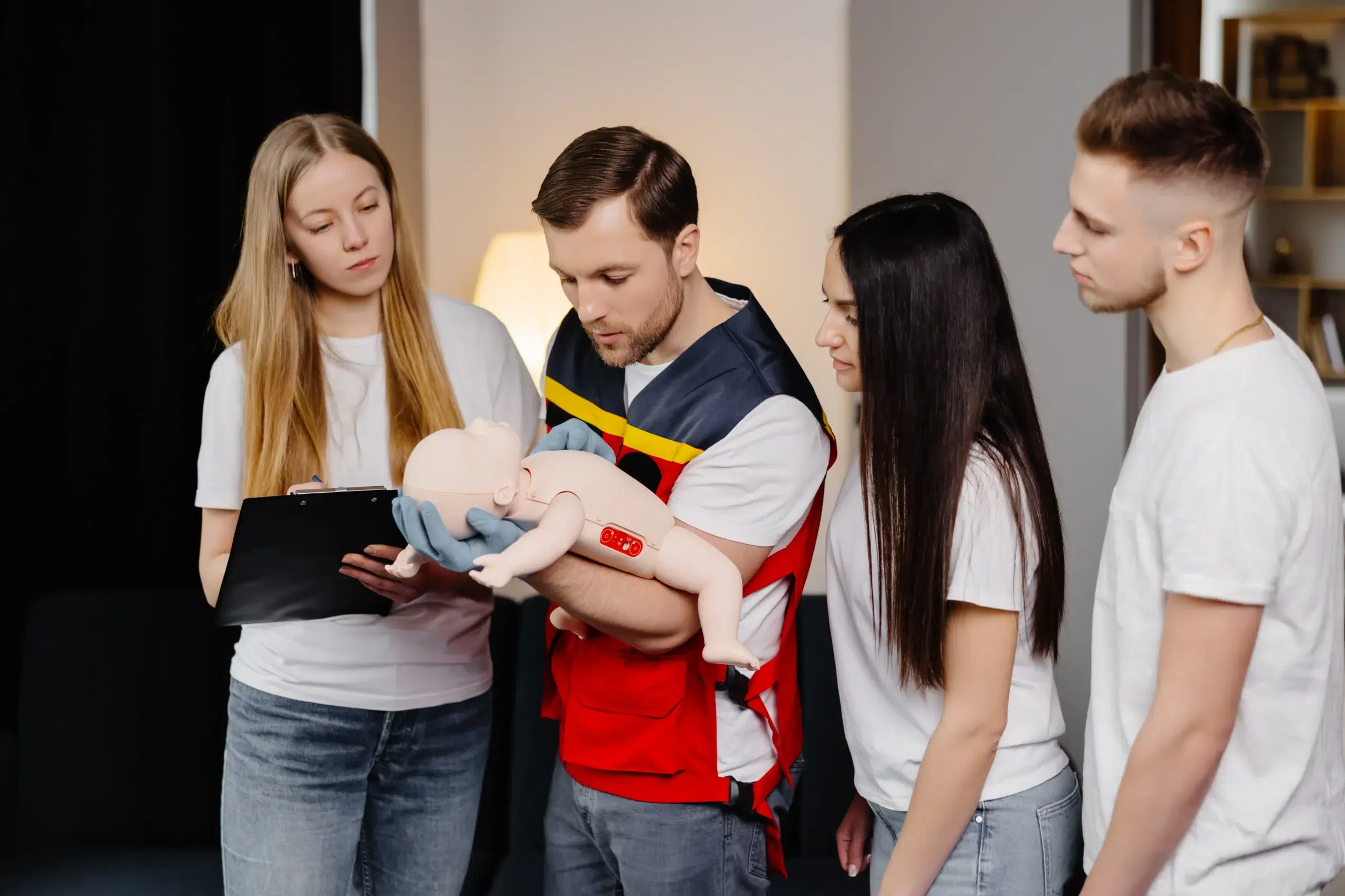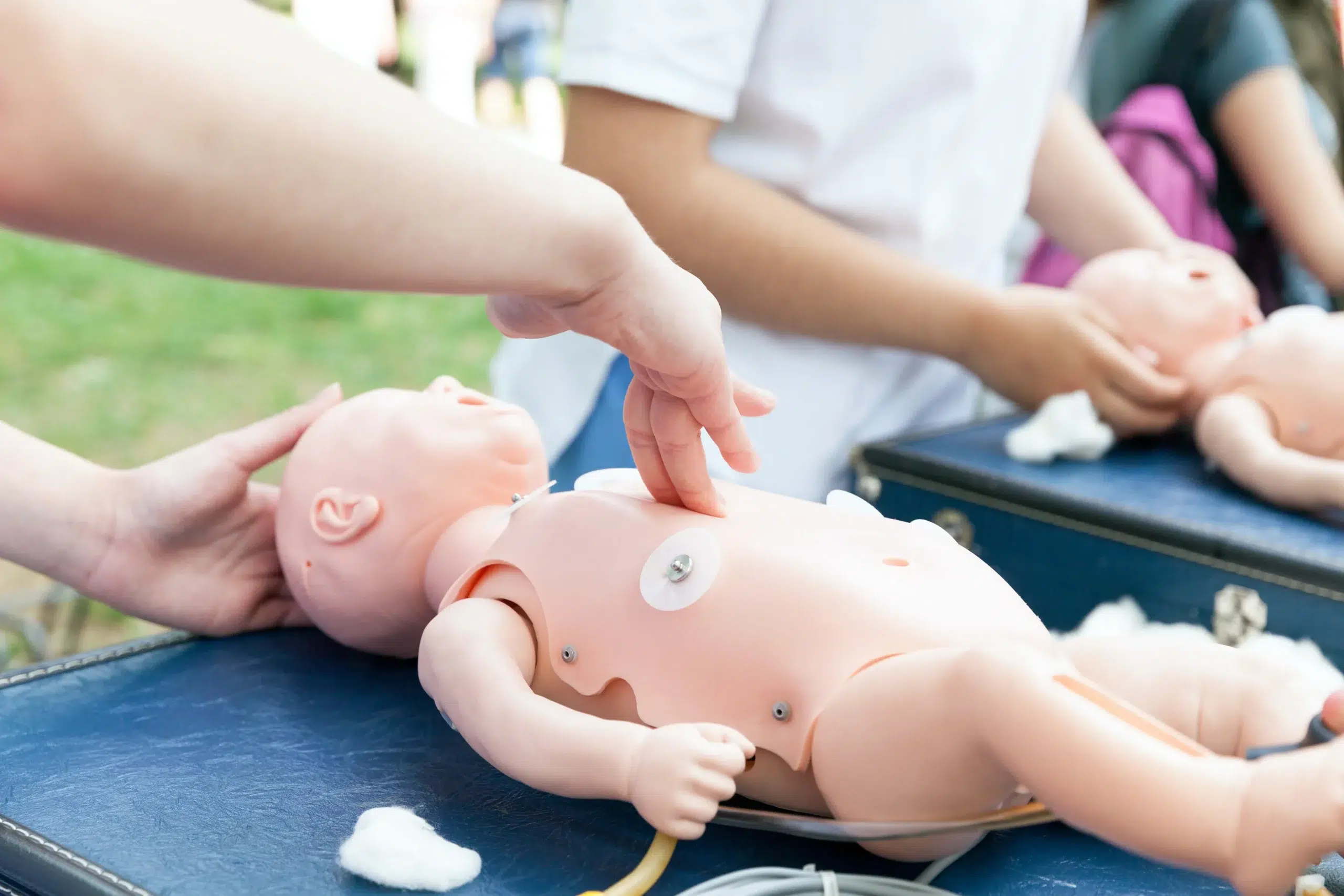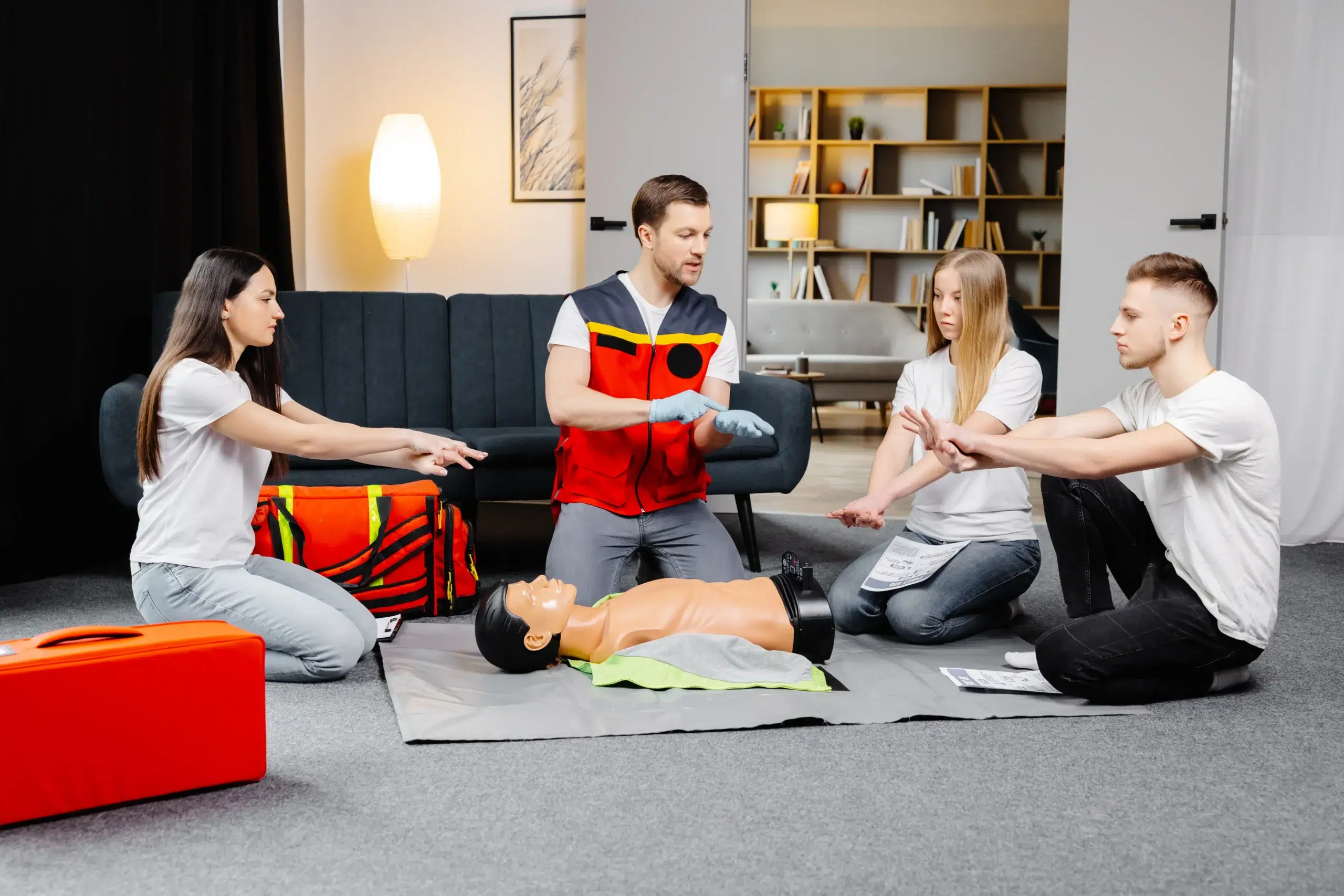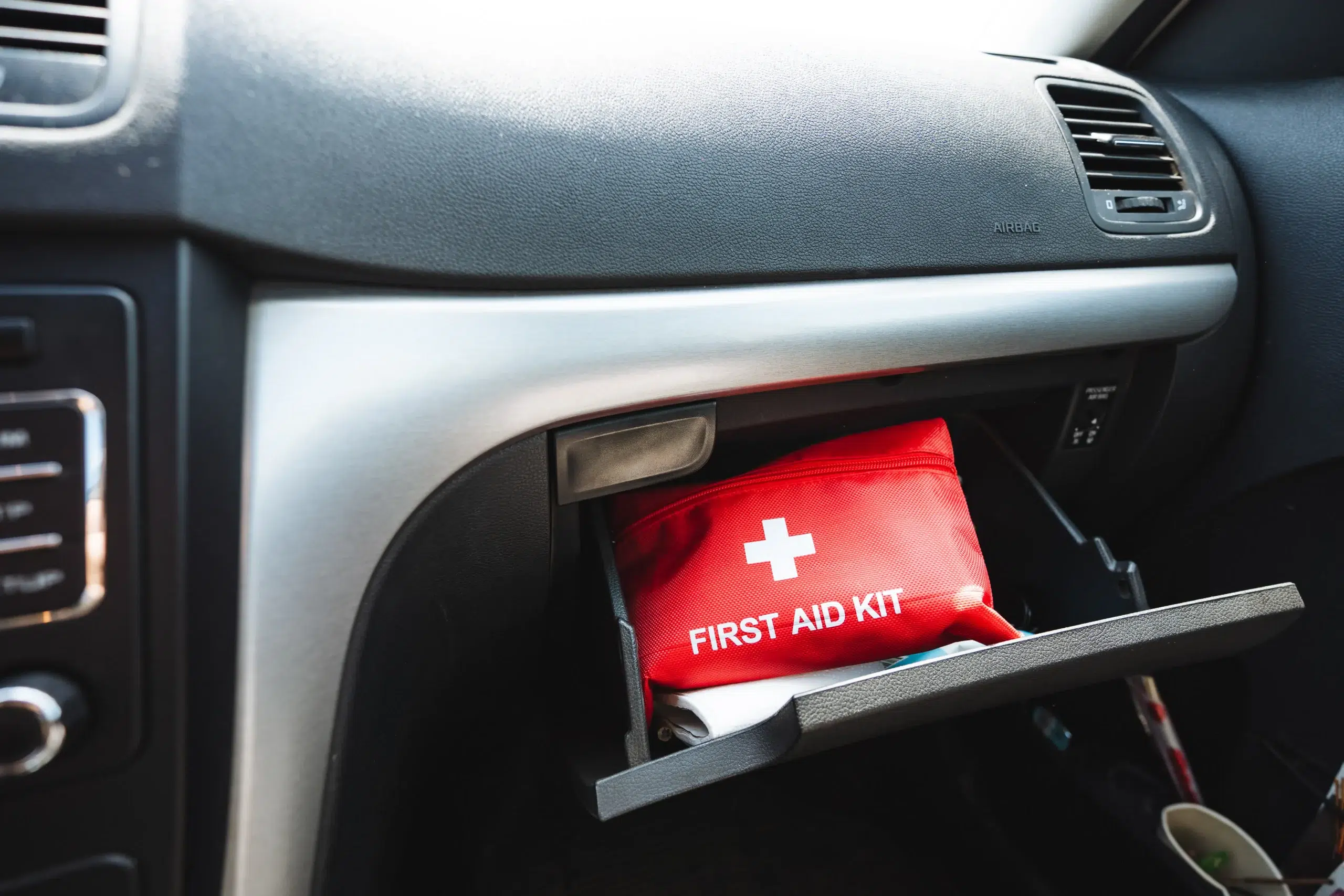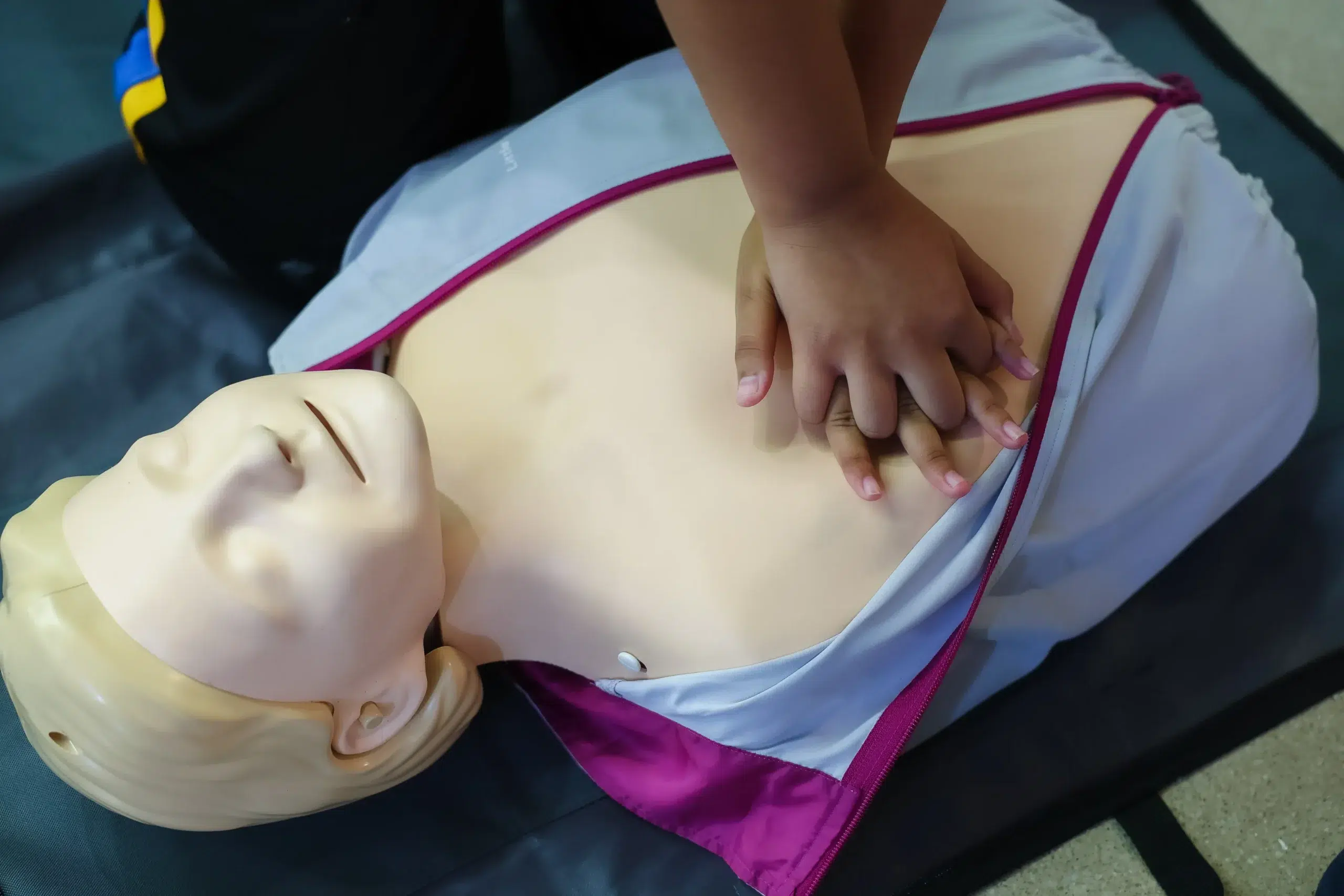Working in healthcare, especially with children, means being prepared for anything. From minor bumps and bruises to life-threatening emergencies, you need the skills and confidence to act quickly and effectively. That’s where Pediatric Advanced Life Support (PALS) certification comes in. This specialized training goes beyond basic life support, equipping you with the advanced knowledge and techniques to handle critical situations involving infants and children. If you’re a healthcare provider in Sacramento, finding a high-quality PALS course is an investment in your career and the well-being of your young patients. This guide will explore everything you need to know about pediatric advanced life support in Sacramento, from course content and costs to finding the right training provider for your needs. Let’s get started!
Key Takeaways
- PALS equips you with essential skills for pediatric emergencies: It’s more than just a certification; it’s a comprehensive training program that builds confidence and competence in managing critical situations involving infants and children.
- Choosing the right PALS course matters: Look for a program that offers hands-on practice, realistic simulations, and aligns with the latest AHA guidelines. Consider factors like instructor experience and a supportive learning environment.
- Staying current with PALS is an ongoing commitment: Renew your certification every two years and seek out continuing education opportunities to stay sharp and maintain the highest standard of pediatric care.
What is Pediatric Advanced Life Support (PALS)?
Pediatric Advanced Life Support (PALS) is a specialized training program that equips healthcare providers with the knowledge and skills to respond effectively to life-threatening emergencies in infants and children. The program focuses on a systematic approach to pediatric assessment, basic life support, PALS treatment algorithms, and effective resuscitation techniques. PALS emphasizes the importance of early recognition and intervention to improve outcomes for these young patients. It covers a wide range of emergencies, from respiratory distress and shock to cardiac arrest and post-resuscitation care. The goal is to give healthcare professionals the tools they need to confidently manage critical situations and provide the best possible care for children in need.
Key PALS Training Components
PALS training is highly interactive and practical. The course incorporates hands-on skill stations where you’ll practice essential techniques like CPR and vascular access. You’ll also participate in simulated pediatric emergencies, working as part of a team to apply your knowledge in realistic scenarios. These simulations are invaluable for building confidence and preparing you to handle the pressure of real-life emergencies. PALS courses cover key areas such as airway management, rhythm recognition, and medication administration, ensuring you’re well-prepared to handle a variety of pediatric emergencies. You’ll learn to use specialized equipment like defibrillators and learn effective communication strategies within a medical team. More information on PALS training components can be found on Livermore CPR Classes website.
Importance of PALS in Pediatric Emergencies
PALS certification is crucial for any healthcare provider regularly working with infants and children. It provides a standardized approach to emergency care, ensuring that everyone on the team is on the same page and can communicate effectively during critical situations. This standardized approach minimizes errors and maximizes the chances of a positive outcome. Holding a PALS certification demonstrates a commitment to providing high-quality pediatric care and can significantly enhance your career. Regular PALS renewal is essential not only to maintain your certification but also to stay up-to-date with the latest advancements in pediatric emergency care. Medical knowledge and best practices are constantly evolving, and renewal courses ensure you’re always equipped with the most current information and techniques. This ongoing commitment to professional development ultimately translates to better care for your young patients. For those in the Sacramento area, Roseville CPR Classes offers comprehensive PALS certification courses.
Top Sacramento PALS Training Providers
Finding the right Pediatric Advanced Life Support (PALS) training provider is crucial for healthcare professionals who need to respond confidently and effectively in pediatric emergencies. This section highlights some of the leading PALS training providers in the Sacramento area, outlining their key offerings and strengths.
Roseville CPR Classes
Roseville CPR Classes, affiliated with Safety Training Seminars, an American Heart Association (AHA) Training Center, offers high-quality PALS courses. Their emphasis on hands-on practice and real-world scenarios makes the learning experience both engaging and practical. Roseville CPR Classes prioritizes equipping healthcare providers with the skills and knowledge to manage pediatric emergencies effectively.
NorCal CPR Training
NorCal CPR Training stands out as an AHA-authorized training center in the greater Sacramento area offering PALS renewal courses. Their classroom-based courses incorporate hands-on training and simulated scenarios to reinforce learning and build practical skills. This approach ensures participants gain the confidence to apply their knowledge in real-life emergency situations.
Dignity Health
Dignity Health offers a PALS course designed to enhance the treatment of children during medical emergencies. Their program includes hands-on practice scenarios with a focus on CPR/AED, cardiac, respiratory, and shock management. This comprehensive approach prepares healthcare professionals to handle a wide range of pediatric emergencies.
UC Davis Health
UC Davis Health provides comprehensive PALS training, adhering to the latest AHA guidelines and protocols. Their courses cater specifically to healthcare professionals who need to respond effectively to pediatric emergencies. The focus on current best practices ensures participants receive up-to-date training relevant to their field. Learn more about their PALS training.
American Red Cross
The American Red Cross offers PALS certification with a modern, science-based curriculum and flexible learning options. Their course incorporates interactive scenarios to enhance decision-making skills in critical situations. The Red Cross’s emphasis on adaptable learning makes their PALS certification accessible to a wider range of healthcare providers.
PALS Course Structures and Formats
Choosing the right PALS course structure is key to effectively learning the skills necessary to respond to pediatric emergencies. Let’s explore the various formats available, including blended learning, in-person training, and the crucial role of hands-on practice and simulations.
Blended Learning
PALS Blended Learning combines online learning with in-person skill sessions. This hybrid approach offers flexibility, allowing you to complete the coursework online at your own pace before attending a hands-on session. This format often includes interactive modules, videos, and quizzes to reinforce learning. The in-person portion focuses on practicing essential skills and demonstrating proficiency in a simulated environment. Roseville CPR Classes offers this convenient Blended Learning format for several of our courses.
In-Person Training
Traditional in-person PALS training provides a structured learning environment with direct interaction with instructors and other healthcare providers. These courses typically involve lectures, demonstrations, and hands-on practice. The in-person format allows for immediate feedback and answers any questions. In-person training includes hands-on skill assessments and simulated pediatric emergencies, offering a safe environment to practice and apply your skills in realistic scenarios. This immersive experience can be particularly beneficial for those who prefer a more traditional classroom setting.
Hands-On Practice and Simulations
Regardless of the course format, hands-on practice and simulations are essential elements of effective PALS training. These sessions provide opportunities to apply your knowledge and skills in realistic scenarios, working collaboratively with a team. Hands-on practice promotes active participation and reinforces learning through real-world application. Simulations allow you to develop critical thinking skills, improve teamwork and communication, and build confidence in managing pediatric emergencies. This focus on practical application is invaluable in preparing healthcare providers for real-life situations.
PALS Certification Prerequisites and Requirements
Before you jump into a Pediatric Advanced Life Support (PALS) course, it’s important to understand the prerequisites. Being prepared ensures you’ll get the most out of the training and be ready to confidently apply these lifesaving skills.
Current BLS Certification
First things first, you’ll need a current Basic Life Support (BLS) certification for healthcare providers. This is non-negotiable, as PALS builds upon the foundational skills taught in BLS. If your BLS certification has lapsed, you might need to take a BLS renewal course or a challenge test, which may come with an additional fee. Check with your chosen PALS provider, like Roseville CPR Classes, for their specific requirements. Roseville CPR classes offers a low price guarantee.
Basic Pediatric Life Support Skills
Beyond having a valid BLS card, you should already be comfortable with basic pediatric life support skills. PALS courses delve into advanced techniques, so having a solid grasp of the fundamentals is key. This prior knowledge will allow you to focus on mastering the more complex procedures and scenarios presented in the PALS course. Consider refreshing your skills beforehand to make the most of your PALS training.
Recommended Preparations
While not strictly required, taking some time to prepare before your PALS course can significantly improve your learning experience. Reading reviews and testimonials from past students can give you a sense of what to expect. Also, keep in mind that PALS training is very hands-on. You’ll participate in simulated pediatric emergencies and skills assessments, so prepare yourself for active participation. You can find more information on PALS courses, including what to expect, in this helpful guide to PALS classes in Sacramento. For those looking to train with colleagues or friends, group discounts may be available.
PALS Course Costs and Value in Sacramento
Understanding the costs associated with PALS certification in Sacramento is essential for planning your training. This section breaks down the typical expenses for initial certification, renewal courses, and potential additional fees. We’ll also explore ways to find the best value for your investment.
Initial Certification Costs
In Sacramento, initial PALS certification typically costs around $290. This usually covers your online course materials, the hands-on skills session, and your official PALS provider card. Remember that prices can vary slightly between providers, so it’s always a good idea to check with the specific training center you’re considering. For example, you can explore the PALS course at Roseville CPR Classes.
Renewal Course Costs
Your PALS certification is valid for two years. To maintain your credentials, you’ll need to renew your certification before it expires. Renewal typically involves a refresher course. The cost of PALS renewal can vary, so contacting your chosen provider or checking their website for the most up-to-date pricing is always best. You can find more information about renewal options on the Roseville CPR Classes website.
Additional Fees and Materials
While most training centers include the core materials in their course fees, there might be occasional additional fees for specific items or services. Contacting the provider directly to get a complete breakdown of all potential costs is always wise. This ensures there are no surprises when you register.
Discounts and Package Deals
Looking for ways to save on your PALS training? Many training centers offer discounts for group registrations or package deals that combine multiple courses. This can be a great option if you’re also planning to take other courses like BLS or ACLS. Check with providers like Roseville CPR Classes to see if they offer any discounts or group rates. Bundling courses can often provide significant cost savings.
What to Expect in a PALS Course
Taking a PALS course is a dynamic learning experience. It’s not just about lectures and textbooks; it’s about gaining practical skills and confidence to handle pediatric emergencies. Here’s a glimpse of what you can expect:
Classroom Instruction
PALS courses begin with foundational classroom instruction covering essential concepts and principles of pediatric advanced life support. Expect interactive discussions and expert-led presentations on topics like pediatric assessment, airway management, and rhythm recognition. This portion of the course lays the groundwork for the hands-on practice to come.
Team-Based Scenarios
PALS training emphasizes teamwork and communication, essential skills in any emergency response situation. You’ll participate in peer-to-peer learning sessions and simulated pediatric emergencies. These scenarios provide a safe environment to practice your skills and apply what you’ve learned in realistic situations, working alongside your peers to manage a crisis effectively. These interactive experiences, much like Peer-Peer Applied Learning Sessions, allow you to collaborate, share insights, and learn from each other’s experiences.
Assessment and Certification
Throughout the PALS course, you’ll undergo regular assessments to gauge your understanding and skill proficiency. These assessments may include written exams and practical demonstrations of key skills. Upon successful completion of the course, you’ll receive your PALS certification, valid for two years. Remember, healthcare professionals are required to renew their PALS certification before it expires to stay current with the latest AHA guidelines and protocols. Consider this renewal a chance to refresh your knowledge and skills, ensuring you’re always prepared.
Emergency Simulations
A crucial component of PALS training is hands-on practice. You’ll engage in various emergency simulations, focusing on essential skills like CPR/AED use, cardiac and respiratory management, and recognizing and responding to shock. These simulations offer a safe and controlled environment to hone your skills and build confidence in managing real-world pediatric emergencies. The simulations often focus on core skills like CPR/AED use and managing cardiac, respiratory, and shock events, providing a comprehensive learning experience. These hands-on exercises, similar to those described in this PALS guide, offer a safe environment to practice and apply your skills.
Benefits of PALS Certification for Healthcare Providers
Holding a PALS certification offers significant advantages in the healthcare field. It demonstrates a commitment to providing high-quality care for young patients. Let’s explore some key benefits:
Enhance Patient Care Skills
PALS certification equips healthcare providers with the advanced skills to manage pediatric emergencies. The course goes beyond lectures and textbooks, incorporating hands-on skill assessments and simulated pediatric emergencies. These realistic scenarios allow you to practice in a safe environment, building confidence and preparing you for real-life situations. This practical training translates directly to improved patient outcomes. You’ll be better prepared to assess, stabilize, and treat critically ill infants and children, ultimately enhancing the quality of care you deliver. For more insights into PALS training, explore this guide to Pediatric Advanced Life Support.
Advance Your Career
In a competitive healthcare landscape, PALS certification can be a significant advantage. It demonstrates your specialized knowledge and commitment to pediatric care, making you a desirable candidate for jobs and promotions. Many healthcare facilities require PALS certification for specific roles, especially those involving direct patient care for infants and children. Earning your PALS certification can open doors to new opportunities and help you advance in your field. Roseville CPR Classes offers a variety of certification courses to help you achieve your career goals.
Improve Teamwork and Communication
Effective teamwork and communication are essential in any healthcare setting, especially during emergencies. PALS training emphasizes these vital skills, teaching providers how to work together seamlessly under pressure. You’ll learn how to communicate clearly and concisely with your team, ensuring everyone is on the same page. This improved communication and teamwork can significantly impact patient outcomes during critical situations. The impact of PALS training on healthcare teams has been well documented.
Increase Confidence in Emergencies
Facing a pediatric emergency can be incredibly stressful. PALS certification provides the knowledge and skills to manage these situations effectively. This training instills confidence, allowing you to act swiftly and accurately when it matters most. Knowing you have the training and expertise to handle pediatric emergencies reduces anxiety and empowers you to provide the best possible care.
Choose the Right PALS Course in Sacramento
Finding the right PALS course can feel overwhelming, but focusing on a few key factors will simplify your search. This section breaks down what to look for in a quality PALS provider in the Sacramento area.
Factors to Consider
PALS training equips you with essential skills to manage pediatric emergencies. While earning your certification might present some challenges, the benefits far outweigh any hurdles. Think about what matters most to you. Is it a convenient location? A blended learning format? The opportunity for plenty of hands-on practice? Asking the right questions upfront will help you find a Sacramento PALS course that truly sets you up for success. Consider factors like instructor experience, the student-to-instructor ratio, and the overall course curriculum. A good program will cover the latest AHA guidelines and incorporate realistic simulations. For example, check out this helpful guide on Pediatric Advanced Life Support in Sacramento.
Compare Training Centers
Take the time to research and compare different training centers in the Sacramento area. Cascade Training Solutions offers various AHA courses, including PALS, in the Roseville region. They provide standard classes and can also arrange private or specialized group training. For a focus on hands-on learning and real-world scenarios, Roseville CPR Classes, affiliated with Safety Training Seminars, an AHA Training Center, is another excellent option. Reading reviews and comparing what each center offers can help you make an informed decision.
Flexible Scheduling
Your schedule is busy, so finding a course that fits your needs is essential. Look for training centers that offer various course dates and times. Some centers provide weekend or evening classes to accommodate those with demanding work schedules. A blended learning format, combining online modules with in-person skills sessions, can offer even greater flexibility. This approach allows you to complete some coursework at your own pace before attending hands-on training. This guide on PALS offers more insights into the benefits of hands-on training and simulations. Remember PALS certification is valid for two years. Sacramento CPR Classes offers PALS renewal courses, allowing you to conveniently stay current with the latest guidelines and protocols. Finding a provider that offers both initial certification and renewal courses can simplify things down the road.
Maintain Your PALS Certification
Keeping your PALS skills sharp is crucial for any healthcare provider. It’s not a one-and-done deal. Staying current with the latest guidelines ensures you’re prepared to handle pediatric emergencies effectively.
Renew Your Certification
PALS certification is valid for two years. You’ll need to renew your certification before it expires to maintain your credentials and demonstrate your continued competence in pediatric advanced life support. Plan and schedule your renewal course in advance to avoid any lapses in your certification.
Continuing Education
Beyond meeting the renewal requirements, ongoing education is key. Medicine is a constantly evolving field, and staying up-to-date on the latest advancements in pediatric care is essential. Look for opportunities to expand your knowledge through workshops, conferences, and online resources. Regular PALS renewal isn’t just about checking a box; it’s about continually refining your skills and staying at the forefront of pediatric care. Consider supplemental PALS training to stay sharp.
Stay Updated on Guidelines
Treatment protocols and best practices in pediatric emergencies can change, so staying informed is crucial. Your renewal course will cover updates, but actively seeking out new information will help you maintain a high level of proficiency. Hands-on practice and simulations are invaluable for reinforcing your skills and applying the most current guidelines.
PALS Course Participant Feedback
When choosing a PALS course, real feedback from other healthcare providers is invaluable. It’s like getting a personal recommendation from a trusted colleague. Here’s what to consider:
Quality of Instruction
Experienced instructors are essential for a good PALS course. Seek out training led by seasoned professionals passionate about pediatric care. Reviews and testimonials from other healthcare professionals offer insights into the instructor’s teaching style and effectiveness. Look for comments about clear communication, helpful feedback, and a supportive learning environment. A knowledgeable and engaging instructor can make a significant difference in your learning experience.
Content Relevance
The PALS course should align with the latest American Heart Association (AHA) guidelines. The curriculum covers various pediatric emergencies, from respiratory distress to cardiac events. Ensure the course content is comprehensive, up-to-date, and relevant to your professional practice. A strong PALS course emphasizes a systematic approach to pediatric assessment and effective communication during emergencies.
Overall Learning Experience
A positive learning experience significantly impacts how well you retain and apply PALS skills. Look for courses that incorporate hands-on practice and simulated pediatric emergencies. These simulations offer a safe environment to practice your skills and build confidence in realistic scenarios. The opportunity to apply your knowledge in a simulated setting can be invaluable.
Impact on Professional Practice
A worthwhile PALS course will positively affect your ability to care for children in critical situations. PALS certification equips healthcare providers to respond effectively during emergencies, potentially improving patient outcomes. Consider how the course content and training methods will translate into real-world scenarios and enhance your daily practice. Choosing the right PALS course can make a real difference in your confidence and competence.
Related Articles
- PALS Certification in Roseville: Your Complete Guide – Roseville CPR Classes
- Online PALS Classes in Sacramento: A Complete Guide – Roseville CPR Classes
- PALS HeartCode Rocklin: Your Certification Guide – Roseville CPR Classes
- AHA PALS Classes in Roseville, CA – Roseville CPR Classes
- AHA Training in Roseville: Your Certification Guide – Roseville CPR Classes
Frequently Asked Questions
What are the key differences between BLS and PALS?
BLS, or Basic Life Support, focuses on the fundamental skills needed for immediate response to life-threatening emergencies like cardiac arrest or choking. It’s the foundation upon which more specialized training like PALS is built. PALS (Pediatric Advanced Life Support) takes these basic skills and applies them specifically to the care of infants and children. It delves into more advanced techniques for managing pediatric-specific emergencies and emphasizes a systematic approach to assessment and treatment.
How often do I need to renew my PALS certification?
PALS certification is valid for two years. To keep your skills current and maintain your credentials, you’ll need to complete a PALS renewal course before your current certification expires. This ensures you’re up-to-date with the latest guidelines and best practices in pediatric emergency care.
What if my BLS certification expires before my PALS course?
Your BLS certification must be current before you can take a PALS course. If your BLS card expires before your scheduled PALS training, you’ll need to renew your BLS certification first. Some training centers may offer a combined BLS/PALS course, which can be a convenient option.
What can I do to prepare for a PALS course?
While a current BLS certification and basic life support skills are the main prerequisites, reviewing core concepts beforehand can be helpful. Familiarizing yourself with pediatric assessment techniques and basic life support algorithms will give you a solid foundation for the more advanced material covered in the PALS course.
Why is hands-on practice so important in PALS training?
PALS isn’t just about memorizing facts; it’s about developing the skills and confidence to act quickly and effectively in a real-life emergency. Hands-on practice and simulations provide a safe environment to apply your knowledge, work as part of a team, and refine your skills under pressure. This practical experience is crucial for translating classroom learning into real-world competence.


